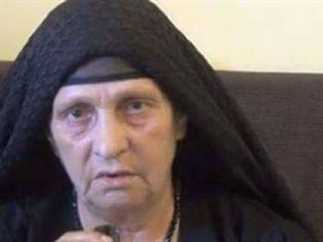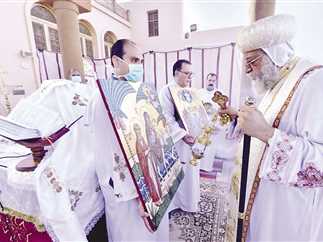Following last week’s deadly violence in Maspero, Coptic activists have made their case: Egypt’s ruling Supreme Council of the Armed Forces (SCAF) is guilty, despite the military’s recent attempts to exonerate itself.
Twenty-eight people died last week when military and police attacked thousands of demonstrators, most of them Coptic Christians. The rally was held in protest against sectarian discrimination after a group of Muslims attacked a church located in the Upper Egyptian governorate of Aswan.
Tear gas and live ammunition were deployed to disperse crowds and armored vehicles were seen running over protesters.
Two military generals held a press conference three days later, during which they denied allegations that the military police used force, deployed live ammunition or drove armored vehicles over protesters. They also claim that protesters attacked the military.
But the Maspero Youth Coalition (MYC), a Coptic activist group, is trying to challenge the military’s narrative. In a Thursday press conference titled “Crushing Egypt,” members of the group showed close-up videos of protesters being run over by armored vehicles that approached them from behind.
At the time of the violence, state TV channels reported that armed Copts attacked the military. An anchor had reportedly called on people to defend the army, a plea that is believed to have incited scores of Muslims to attack Copts.
“I thank the Egyptian army for opening up my eyes to the truth. This conference made me believe that if we don’t talk, these people’s blood will go to waste. It’s because of SCAF’s conference that I’m standing with you today,’ said Vivian Magdy, whose fiance died in the clashes.
The Coptic activists also ran the first part of the video, in which protesters assaulted the driver of an armored vehicle. SCAF relied on that video in its press conference. The full video, however, reveals that the protesters were chased by the armored vehicle before they started attacking the driver.
Hany Ramsis, a member in MYC narrated the events from the beginning.
“We were marching peacefully from Shubra and people in the street were supporting and joining us until we reached the Shubra tunnel when we were confronted with a barbaric attack from civilians,” said Ramsis.
A video was shown from the march where men in plain clothes were shown throwing rocks, Molotov cocktails and glass at protesters.
“The tunnel became a Coptic grave,” said Ramsis.
“As soon as we reached Maspero, huge numbers of military forces attacked and beat us for no reason. There were no prior gun shots from protesters, unlike SCAF claims,” added Ramsis, pointing to the video.
SCAF said that both protesters and military forces were attacked by an unknown third group that used live ammunition, causing casualties in both sides.
According to the military forces, some soldiers were killed with live bullets, but the military has refused to reveal the number or their names.
Military police detained 25 people after the events. Facing charges of attacking military forces, they are now under investigation,
MYC demanded an official apology from the SCAF to Egypt’s Copts and an investigation with those implicated in the events, including the government, SCAF, and state TV.
“SCAF leaders committed a heinous crime against Copts. They violated the law and the revolution’s principles,” the official MYC statement said.
The group also requested the release of 25 detainees and the formation of several independent fact-finding committees to investigate crimes committed against Copts before and after the revolution.
“If SCAF says it was a third party and not protesters that killed the people, why are they still detaining protesters?” asked Nader Shokry, member of MYC’s executive bureau.
Coptic activists called on the government to legalize all churches and draft a new law to regulate church building. Laws regulating church construction have long been a point of contention for Copts, who say they are discriminatory.
Magdy complained that not enough people have given their testimonies to the prosecution, a reality which may weaken the case against the SCAF.
“We were thousands marching together shoulder to shoulder. These people vanished as soon as we said go testify to the military prosecution,” said Magdy.
“If we were afraid, we wouldn’t have sacrificed our lives, dreams and families. If people are afraid, I ask them to try putting themselves in the shoes of someone who lost a family member.”




